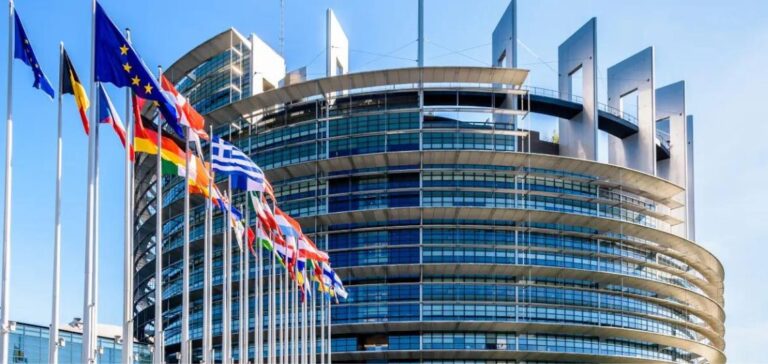EU member states formally approved on Tuesday the ambitious reform of their carbon market, voted last week by MEPs, a final green light that paves the way for the entry into force of this pillar of the European climate plan.
Meeting in Luxembourg, the Ministers of Agriculture of the 27 Member States ratified the texts raising the ambitions of the carbon market, the inclusion of maritime and air transport, its extension to housing and transport for individuals, and the creation of a social fund to compensate for the repercussions of this environmental transition. They also validated the text establishing a“carbon tax” at the borders of the EU to green its imports, said Sweden, which holds the rotating presidency of the EU.
This approval, purely formal, comes one week after the green light from the European Parliament. States as well as MEPs have validated without modification the agreement they had reached in late December after long talks.
This reform should make it possible to achieve the ambitious climate objectives of the 27 Member States, which intend to cut their greenhouse gas emissions by 55% by 2030, compared to 1990. To cover their CO2 emissions, electricity producers and energy-intensive industries (steel, cement, etc.) in the EU must now buy “pollution permits” on the European Union Emissions Trading Scheme (ETS), the most ambitious in the world, created in 2005 and which currently applies to 40% of the continent’s emissions.
The reform provides for an acceleration of the rate of reduction of proposed allowances to force the industries concerned to reduce their emissions accordingly. The ETS market will gradually be extended to the maritime sector and to emissions from intra-European flights. A second carbon market (ETS2) is planned for building heating and road fuels.
Controversial point: households will also pay a carbon price on fuel and heating from 2027. However, the text aims to cap it at 45 euros/tonne at least until 2030. 86.7 billion, a Social Climate Fund designed to help micro-businesses and vulnerable households in this energy transition is to be set up in 2026.
Finally, a “border carbon adjustment mechanism” (CBAM) – not a tax per se – will apply the criteria of the European carbon market to imports from the 27 Member States in the sectors deemed to be the most polluting (steel, aluminum, cement, fertilizer, electricity), forcing the importer to acquire “emission certificates” at the price of CO2 in the EU.
As this “carbon tax” at the borders is ramped up between 2026 and 2034, the EU will gradually phase out the free emission allowances allocated to European manufacturers to enable them to compete with non-European companies.





















